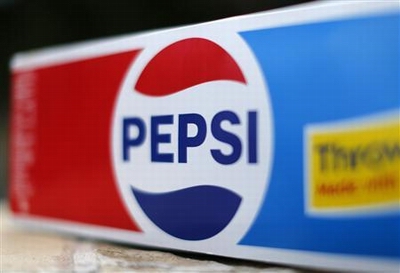
Speaking to analysts on Tuesday, CEO Indra Nooyi said carbonated beverages now make up about 40 percent of Pepsi's North American drinks business, down from more than 50 percent a decade ago, due to a "fundamental shift" in consumer preferences.
The soda category is declining about 3 percent a year overall as consumers are demanding healthier and more natural-seeming options, she said.
"In the last six to nine months, there has been an accelerated decline in diet drinks as people say they don't even want artificial sweeteners. The diet slowdown has been a little more rapid than we expected," Nooyi said.
For PepsiCo to keep a grip on soda, "it's important in the next two to three years we come up with" innovations such as a new, more natural, low-calorie sweetener.
Competitor Coca-Cola said on Monday that its North American sales volume increased 2 percent overall in the last quarter, largely because of its successful non-soda offerings.
PepsiCo has managed to weather bumps in the soda market due to its wide array of snacks and beverages, which include Frito-Lay chips and Tropicana juices.
Pepsi's net income was $1.91 billion, or $1.23 per share, in the third quarter, up less than 1 percent from $1.90 billion, or $1.21 per share a year earlier.
Excluding items, earnings were $1.24 per share. On that basis, analysts were expecting $1.17, according to Thomson Reuters I/B/E/S.
PepsiCo's shares were up almost 1.6 percent at $81.89 in early trading.
To Spin Off Not
PepsiCo has been under pressure from activist shareholder Nelson Peltz since July, when he said publicly that the company should buy Oreo cookie-maker Mondelez International (MDLZ.O) and split off its soft-drink business from the rest of the company.
In an interview on CNBC on Tuesday morning, investor Warren Buffet, whose Berkshire Hathaway Inc is a major Coca-Cola shareholder, defended PepsiCo's business model, saying that the snacks business "is a terrific business, and the other (drinks) is a perfectly good business, and why break them up?"
"I believe in running the company for shareholders that are going to stay, rather than the ones that are going to leave and if you are going to stay as a shareholder I think you like the idea of them having two good businesses," Buffet said.
Overall sales volume rose 3 percent for the food business and 1 percent on the beverage side. Volume tracks the amount of product sold.
Volume in the American food business grew 3 percent. In Latin America and Europe, it also increased 3 percent. In Asia, the Middle East and Europe, snacks gained 4 percent, led by double-digit growth in China, Pakistan and Turkey.
On the drinks side, volume declined 4 percent in the Americas and 1 percent in Europe, and rose 7 percent in Asia, the Middle East and Africa.
Pepsico's net revenue rose 1.5 percent to $16.91 billion. Johnston told analysts that foreign exchange rates contributed to a 1 percent drag on revenue and the refranchising of its business in Vietnam caused them to lose an additional 0.5 percent in the quarter.
Pepsi repeated its outlook for 2013, which calls for earnings growth of 7 percent, and said it was on track to deliver its planned $900 million in productivity savings during 2013 to reach $3 billion in savings between 2012 and 2014.







